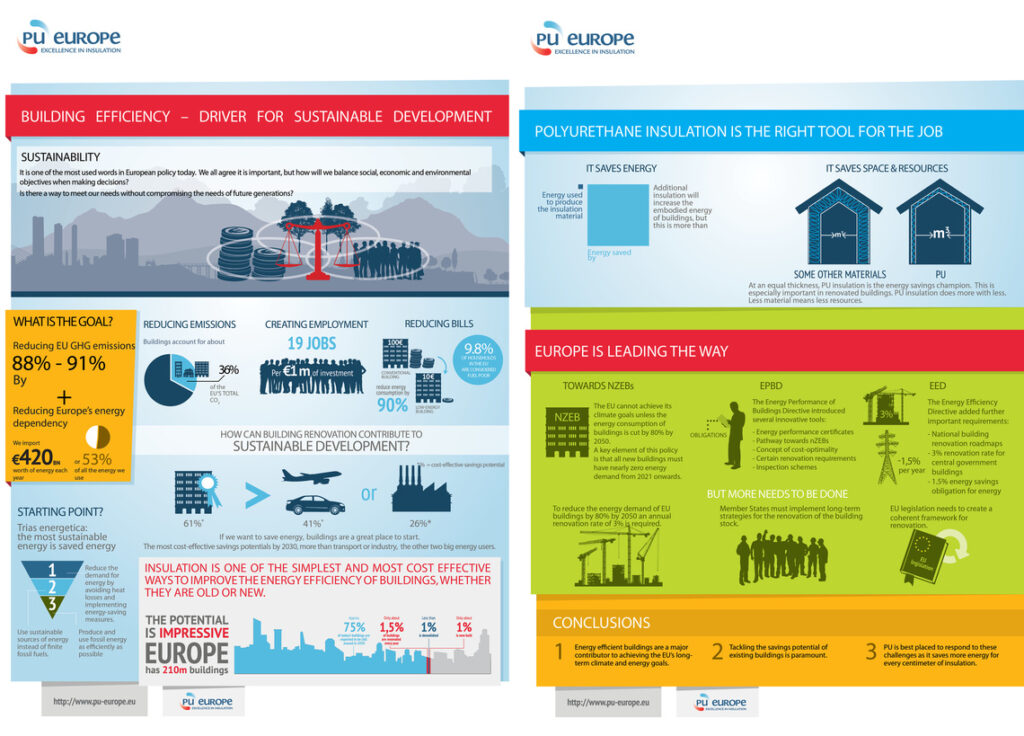Activities
Energy efficiency
Climate change is one of the biggest challenges of our times requiring quick action to cut greenhouse gas emissions. Furthermore, the transition to a circular economy is very much needed to cut our addiction to more and more scarce resources.
Increasing the energy efficiency of Europe’s new and existing buildings provides very substantial benefits regarding all three pillars of sustainable development
Buildings account for almost 40 %1 of the EU’s overall energy use. Minimising their energy demand will significantly reduce greenhouse gas emissions and hence contribute to mitigating climate change.
In 2021, the EU imported more than 40 % of its total gas consumption, 27 % of oil imports and 46 % of coal imports from Russia. Energy represented 62 % of EU total imports from Russia, and cost €99 billion.
The increased use of thermal insulation in buildings, which accounts for approximately 40 % of carbon dioxide emissions, will help in our fight to reduce these emissions and mitigate the dramatic impacts of climate change. PU Europe members help this cause with the production of PUR/PIR which is one of the most highly efficient insulation on the market. About 19 local jobs are created for each €1m invested in energy efficiency. Moreover, making buildings energy efficient contributes to avoiding fuel poverty.
PU Europe has played an active role in helping to shape ambitious policies through the Energy Performance of Buildings Directive (EPBD) and the Energy Efficiency Directive (EED). As a result, all new buildings must have nearly zero energy demand from 2021 onwards. However, Europe’s climate goals for 2050 cannot be achieved unless the energy demand of the 210 million existing buildings is reduced by 80 % by that date. Comprehensive national renovation strategies as defined in the Energy Efficiency Directive are a prerequisite to achieve this. With this in mind, PU Europe is a partner of the Renovate Europe campaign which promotes the benefits of building renovation.
(Infographics also available in: ES)
Being a high performance insulation material, polyurethane (PUR / PIR) is best suited to design nearly zero energy buildings and drastically reduce the demand of existing buildings.
Position papers
PU Europe factsheets
Other reports
1 Commission Communication COM (2011) 109 final “Energy Efficiency Plan 2011” (page 7)

